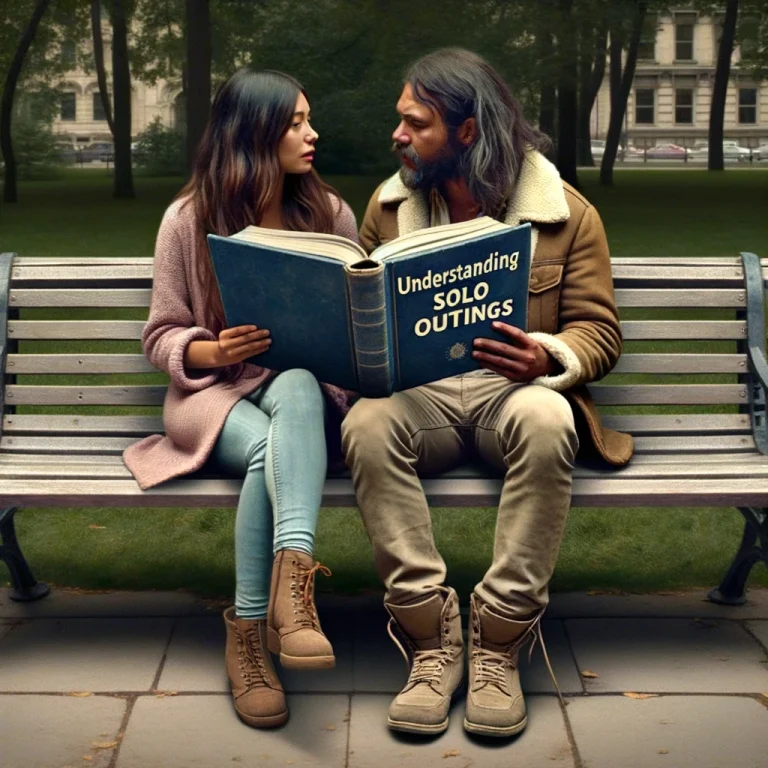Did you know that marrying a couple without a marriage license can have serious legal implications?
I will tell you the lesser-known facts surrounding the role of a pastor in conducting marriage ceremonies.
I will also highlight the significance of obtaining a marriage license and the potential consequences of neglecting this crucial step.
Stay informed about the intricacies of marriage law in this informative read.
Legal Requirements for Marriage Ceremonies

To legally officiate a marriage ceremony, you must meet all the necessary legal requirements. A marriage license is typically required for a marriage to be legally recognized.
This license is obtained from the appropriate government authority and serves as proof that the couple meets the legal requirements to enter into a marriage.
It’s the responsibility of the officiant, whether a pastor or another authorized person, to ensure that the couple has a valid marriage license before conducting the ceremony.
Failing to comply with these requirements could result in the marriage being considered void or invalid, with potential legal consequences for all parties involved.
Role of a Pastor in Marrying Couples
When it comes to the role of a pastor in marrying couples, there are certain legal requirements that they must meet.
A pastor must have the authority to officiate weddings, which usually involves being ordained or licensed by a recognized religious organization.
Additionally, pastors have important responsibilities in conducting the ceremony, such as providing pre-marital counseling and ensuring that the marriage is performed in accordance with the couple’s religious beliefs and traditions.
Legal Requirements for Pastors

Your role as a pastor in marrying couples requires understanding the legal requirements. As a pastor, you must possess certain qualifications to officiate weddings. These qualifications may include being ordained or licensed by a recognized religious organization and having the authority to perform marriage ceremonies.
There are legal limitations to your role as well. For example, in most jurisdictions, you’re required to ensure that the couple has obtained a valid marriage license before conducting the ceremony. Additionally, you may be required to register the marriage with the appropriate government authorities.
Understanding these legal requirements will help you ensure that the couples you marry are legally recognized.
Authority and Responsibilities
As a pastor, you have the authority and responsibilities to solemnize marriages and ensure their legal recognition. Your role in marrying couples goes beyond just performing the ceremony.
You’re entrusted with the task of guiding and counseling them throughout the process. This includes providing pre-marital counseling to help the couple understand the commitment they’re about to make and to address any potential issues that may arise.
You’re accountable for ensuring that the couple meets all the legal requirements for marriage, including obtaining a marriage license.
It’s important to educate the couple on the legal obligations and implications of marriage, as well as to support them in building a strong foundation for their life together.
Importance of a Marriage License
Obtaining a marriage license is crucial for a pastor to legally marry a couple. A marriage license serves as proof that the couple meets the legal requirements to marry, ensuring the validity and legality of the marriage.
Here are two key reasons why a marriage license is of utmost importance:
- Protection of rights and benefits: A marriage license grants legal recognition to the union, ensuring that both individuals receive the rights and benefits associated with marriage, such as inheritance rights, healthcare decisions, and tax benefits. Without a marriage license, these protections may be denied.
- Clarity and certainty: A marriage license provides clarity and certainty to the couple, their families, and society. It establishes the legal status of the marriage, making it easier to resolve any disputes that may arise in the future.
Potential Consequences of Marrying Without a License

Marriage without a license can have serious legal implications. Without a valid marriage license, the marriage may be considered invalid in the eyes of the law. This could lead to complications when it comes to legal rights, such as property division, inheritance, and spousal benefits.
Additionally, the couple may face risks such as being denied certain privileges and protections that come with a legally recognized marriage.
Legal Implications of Unlicensed Marriage
Legal Implications of Unlicensed MarriageWhen marrying without a license, you risk legal ramifications. It’s important to understand the potential consequences of engaging in an unlicensed marriage. Here are some key points to consider:
- Ethical considerations:
- Marrying without a license raises ethical concerns as it goes against legal requirements and societal norms.
- It may create difficulties in accessing legal rights and protections associated with marriage.
- Religious exemptions:
- Some religious institutions may have exemptions that allow for unlicensed marriages based on their beliefs and practices.
- These exemptions may not necessarily protect couples from legal consequences or grant them the same legal recognition as a licensed marriage.
It is crucial to carefully weigh the legal implications before deciding to marry without a license to ensure that your union is recognized and protected in accordance with the law.
Risks for the Couple
Marriage without a license can have serious consequences. Consider the potential risks:
- Legal implications: Marrying without a license can make your marriage legally invalid, depriving you of important rights and protections like property rights, inheritance rights, and healthcare benefits.
- Social and financial repercussions: Without a marriage license, you may encounter difficulties in obtaining joint loans, insurance coverage, tax benefits, and acceptance in communities or organizations that require proof of legal marriage.
Exceptions to Marriage License Requirements

Exceptions to Marriage License RequirementsMarriage without a marriage license is possible in certain cases, but it’s important to recognize the risks involved.
While most states mandate a marriage license for legal recognition, there are a few exceptions. One is common law marriage, which acknowledges a marriage based on the couple’s intent and cohabitation. This exception is limited to select states.
Another exception applies to couples belonging to a religious group with its own marriage ceremony requirements, exempting them from obtaining a marriage license.
Couples considering these exceptions need to be aware of potential legal consequences and limitations, such as property rights, health benefits, and child custody. Seeking guidance from legal professionals is strongly advised to safeguard the couple’s rights and interests.
Alternatives to Traditional Marriage Ceremonies

You can explore alternatives to traditional marriage ceremonies that provide flexibility and personalization for your special day.
Non-traditional ceremonies offer a unique way to celebrate your love and commitment, allowing you to break away from societal norms and create a ceremony that truly reflects your values and beliefs.
Symbolic marriage celebrations are one such alternative, where couples can incorporate meaningful rituals, such as handfasting or unity candle lighting, to symbolize their union. These ceremonies often focus on the emotional and spiritual aspects of marriage, emphasizing the couple’s deep connection and shared union.
Another option is to have a themed wedding, where you can incorporate elements that resonate with your interests and passions, making your celebration truly unforgettable.
What Is the Process for Obtaining a Marriage License?
- Research Local Requirements: Before applying, research the specific requirements for obtaining a marriage license in your state or country. This can usually be found on government websites.
- Gather Required Documentation: Commonly required documents include proof of identity (such as a driver’s license, state ID, or passport), proof of age, and sometimes proof of residency. If either party has been married before, documentation regarding the dissolution of the previous marriage (like a divorce decree or death certificate) may be required.
- Complete the Marriage License Application: This can often be done online, by mail, or in person at your local government office, such as the county clerk or registrar’s office.
- Pay the Application Fee: There is typically a fee for processing the marriage license. The amount varies by location.
- Observe Waiting Periods, if Applicable: Some places have a mandatory waiting period between when the license is issued and when the marriage can legally take place.
- Meet Age and Consent Requirements: Most places have minimum age requirements and may require parental consent for individuals below a certain age.
- Undergo Health Screenings, if Required: Some jurisdictions may require blood tests or other health screenings.
- Attend a Marriage License Issuance Appointment, if Necessary: In some cases, you might need to appear in person to obtain the license.
- Review and Sign the Marriage License: Ensure that all the information on the license is correct before signing it. This is often done in the presence of a witness or the official who issues the license.
- Get Married Within the License’s Validity Period: Marriage licenses are only valid for a specific period, which can range from a few days to several months, depending on the location.
- File the Signed License Post-Ceremony: After the wedding, the person who officiated must sign the license and it should be filed with the appropriate government office to legalize the marriage.
Can a Couple Have a Religious Ceremony Without a Marriage License?

Yes, a couple can have a religious ceremony without a marriage license, but it is important to note that a marriage license is required for legal recognition of the marriage.
Is a Marriage Ceremony Performed by a Pastor Legally Binding Without a Marriage License?
Yes, a pastor can perform a marriage ceremony without a marriage license, but it may not be legally binding. Religious exemptions exist, but it’s important to check your state’s laws regarding alternative marriage ceremonies.
What Are the Potential Legal Consequences of Getting Married Without a Marriage License?

The potential legal consequences of getting married without a marriage license can vary depending on your jurisdiction. It is important to understand the implications of marriage without a license to avoid any legal issues.
Are There Any Circumstances Where a Couple Can Be Exempt From Obtaining a Marriage License?
In some circumstances, couples may be exempt from obtaining a marriage license based on religious exemptions. It is crucial to consider the potential legal implications of marrying without a license.
Conclusion
While a pastor can perform a marriage ceremony, it’s important to note that a marriage license is required to ensure the legal validity of the union. Without a license, the marriage may be considered void, and the couple could face legal consequences.
It’s crucial to comply with the legal requirements and obtain a marriage license to ensure that your union is legally recognized and protected. Ignoring this requirement can put your marriage at risk and lead to unforeseen complications.




Leave a Comment